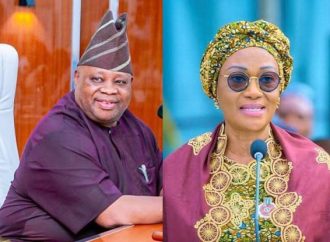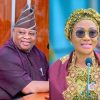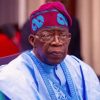South-East States Intensify Military Recruitment Drive Amid IPOB Resistance Amid mounting concerns over consistently low military enlistment figures from the South-East, state governments in the region have launched renewed efforts to mobilise young people to join the Nigerian Army. Enugu, Anambra, and Imo states are spearheading grassroots awareness campaigns in a bid to reverse the
South-East States Intensify Military Recruitment Drive Amid IPOB Resistance

Amid mounting concerns over consistently low military enlistment figures from the South-East, state governments in the region have launched renewed efforts to mobilise young people to join the Nigerian Army. Enugu, Anambra, and Imo states are spearheading grassroots awareness campaigns in a bid to reverse the trend, despite vocal opposition from the separatist group, Indigenous People of Biafra (IPOB).
The low turnout of South-East youths during recent Army recruitment exercises has raised alarms within government circles and the Nigerian military. Officials have pointed to misinformation, ethnic mistrust, and logistical barriers as key challenges affecting participation.
Oluwole Oke Dumps PDP Over Leadership Failure, Neglect of Constituents
Grassroots Sensitisation in Full Swing
In Enugu State, authorities are actively engaging youth through a multi-tiered sensitisation strategy. Speaking on the state’s initiatives, the Special Assistant to the Governor on Media, Mr. Uche Anichukwu, said traditional rulers, local government chairmen, councillors, and town unions are all involved in efforts to educate and encourage eligible youths to consider a career in the military.
“The state is currently engaging local leaders to let their youths know the importance of joining the military,” Anichukwu noted. This comes as the government recently held a sensitisation workshop in collaboration with the Nigerian Army.
The Commissioner for Youths and Sports, Lloyd Ekweremadu, highlighted that poor access to information and internet connectivity were major barriers. “Many youths are unaware of the recruitment process or lack access to the internet to complete their registration,” he explained. Local governments are now stepping in to provide facilities and assistance for online registration.
In Imo State, similar mobilisation efforts are being ramped up. Commissioner for Information and Strategy, Declan Emelumba, confirmed that the government is collaborating with community leaders to dispel fears and promote the benefits of military service.
“We are hopeful that more youths will take advantage of this opportunity to build careers in the military,” Emelumba stated. “We urge South-East youths to take their place with pride in the Army.”
Meanwhile, Anambra State has also acknowledged persistent challenges in meeting recruitment quotas. According to John Chukwu, Public Relations Officer at the State Ministry of Youth Development, the state has consistently failed to meet its enlistment targets over the years.
To counter this, the government has launched town hall meetings aimed at encouraging youths to view the military not just as a job, but a noble national duty. “It offers a pathway to personal development, national pride, and community representation,” Chukwu stated. He added that fears of ethnic discrimination have played a significant role in discouraging Igbo youths from enlisting.
IPOB’s Defiance and Allegations of Bias
Despite these state-backed efforts, IPOB remains a vocal opponent of Igbo participation in the Nigerian Army. The group’s spokesman, Emma Powerful, reiterated their rejection of military recruitment in the South-East, accusing the federal government of ethnic marginalisation.
“They recruit our youths and send them to Boko Haram territories to die,” Powerful claimed. He also criticized the lack of Igbo representation in senior security positions, including the Chief of Defence Staff, Chief of Army Staff, and the Inspector General of Police.
Powerful alleged that the recruitment process itself was discriminatory, pointing to fewer enlistment slots allocated to the South-East compared to the northern regions. IPOB maintains that such disparities are further evidence of systemic bias against the Igbo people.
Military Response and National Perspective
A senior military source, speaking anonymously, confirmed that the Nigerian Army has recognised the challenge and is actively working to correct misconceptions. “We have been holding town hall meetings and using mass media platforms to sensitise the public,” the source stated. The effort spans the South-East, South-South, and South-West, where enlistment rates are generally lower compared to the North.
While enlistment from northern states remains robust, the military is determined to foster regional balance and ensure equitable participation from all parts of the country. The source admitted, however, that IPOB’s influence and rhetoric have significantly affected youth perception in the South-East.
The Road Ahead
As the recruitment drive continues, the challenge remains twofold: countering misinformation while rebuilding trust in national institutions among South-East youths. For many in the region, the Army is not just seen through the lens of national service but also as a symbol of marginalisation—a narrative that state and military officials are now working hard to change.
Through a mix of policy outreach, digital support, and local partnerships, the South-East governments hope to improve enlistment numbers and redefine the image of military service as both an honourable and inclusive career path.














Leave a Comment
Your email address will not be published. Required fields are marked with *